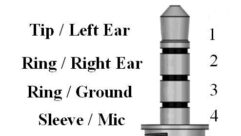See subsequent article for new information on this story.
Whether Brendan Carr, nominee for the open Republican seat on the FCC, will have the job for one year or six years became the only contentious moment during Wednesday’s executive session of the Senate Committee on Commerce, Science, and Transportation.
In a 14–13 partisan vote, the committee approved Republican chairman Ajit Pai’s nomination for his term, which continues through June 2021, and former Democratic commissioner Jessica Rosenworcel’s return to the agency for a term ending in 2020. (In essence, her term extends from the end of her previous appointment.)
The confirmation of David Redl, President Donald Trump’s choice as head of the National Telecommunications and Information Administration, was put on hold.
Sen. John Thune (R-S.D.), the committee chairman, explained, without details, that the committee had received “a request for additional time to follow up on issues raised during his confirmation hearing and subsequent requests for information from the Commerce Department.”
“While I believe he is well qualified, and have heard from a number of his supporters, I also believe his nomination will advance more smoothly if Members have the next few weeks to resolve these outstanding issues,” Thune said. Redl had served as chief counsel for Communications and Technology for the House Energy & Commerce Committee.
The FCC nominations were among about a dozen appointments for various agencies OK’d by the Commerce Committee. The full Senate is likely to act on them possibly as soon as later this week.
In his opening remarks, Thune acknowledged that “consideration … by the full Senate has been arduous, even for the most noncontroversial nominees.”
“It appears that the logjam may soon be breaking,” he said. Majority leader Mitch McConnell (R-Ky.) and minority leader Charles Schumer (D-N.Y.) are working on a nominations package to be considered before the Senate recesses later this month, Thune said.
Thune said that he hopes the Senate would also approve “six telecom measures this committee has reported by voice vote, which have been held up as we awaited Jessica Rosenworcel’s renomination and confirmation.” They include mobile, rural and anti-spoofing legislation.
“These bipartisan measures have languished for too long and it is time to send them to the House of Representatives,” Thune said.
The committee’s ranking member, Sen. Bill Nelson (D-Fla.), noted it was his “clear understanding” that McConnell and Schumer are “working out a package that includes a lot of nominations.” But Carr is only expected to be approved for the remainder of former FCC chairman Tom Wheeler’s open term, and not the subsequent five-year term.
“There may be precedents, but not for a second term being this long, which would throw the entire balance of the FCC out of whack,” Nelson said.
Questions About Carr, Next Steps
Carr’s nomination triggered a partisan debate about the possibility that the FCC might face a political imbalance at the end of next year, when Democrat Mignon Clyburn must leave office. Carr would fill out the reaming months of Wheeler’s term through June 2018, then take the seat for a full five years.
Nelson cited concerns that set the stage for a FCC that would have three Republicans and only one Democrat. “The commission is supposed to be 3 to 2,” Nelson said.
Sen. Edward Markey (D-Mass.) said that, “We’re awaiting [Clyburn’s] decision about whether she will continue or if there will be a vacancy.”
“There should be a proper pairing” following the committee’s policy of pairing appointments from each party, Markey added. “We’re asking that the committee accepts our good faith that we are allowing Mr. Carr to bring the commission to full strength,” he said.
Thune acknowledged the tradition for filling out a term and pairing partisan appointees.
While the committee discussion was taking place, the Republicans’ staff dispatched a reminder that at least four commissioners in recent years have been simultaneously approved to fill out a term and to begin a subsequent five-year term. The list included Wheeler in 2013, who completed six weeks of a term, then continued into a full term beginning in July 2013. In 1994, Susan Ness was nominated in April to fill a term ending that June and beginning a full term afterwards.
Thune also noted that Gloria Tristani was nominated simultaneously with Michael Powell in 1997. Tristani filled an empty seat for several months, then started a full term. Another commissioner, Susan Wing, had a similar situation in the late 1980s. Markey later pointed out that the Tristani nomination was in the context of a vote for four nominees, including Powell.
Sen. Maria Cantwell (D-Wash.) said she opposed the simultaneous term approvals, voicing concern that Carr, currently the FCC’s general counsel and Pai’s former legal adviser, “will just parrot” Pai’s stances, “not be an independent voice.”
“I would like to talk to him again after some time on the FCC,” she said.
Before joining the FCC, Carr was an attorney at the law firm Wiley Rein.
Rosenworcel had been an FCC commissioner from 2012 through the end of last year. Her term ended in 2015 and she was renominated by former President Barack Obama, but the Senate did not confirm that nomination.
During its 30-minute session, the committee approved only one item involving the FCC. The Rural Wireless Access Act of 2017 was bundled with several other pieces of legislation, which the agency approved quickly by voice vote. The bill would require the FCC to establish a methodology to collect information about commercial mobile service and commercial mobile data service.










